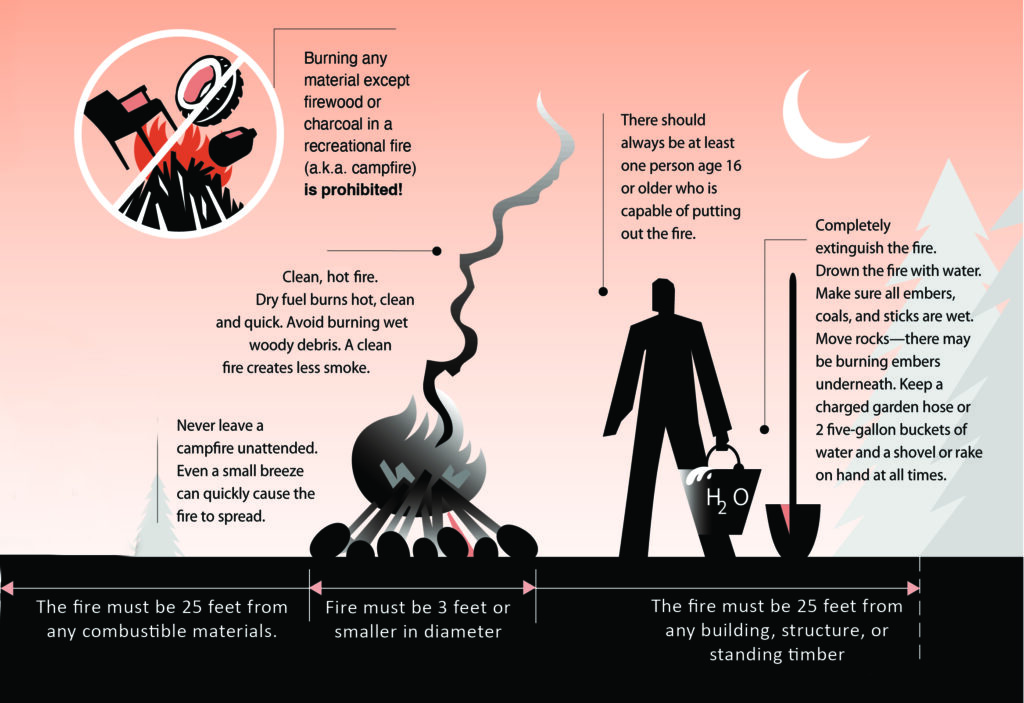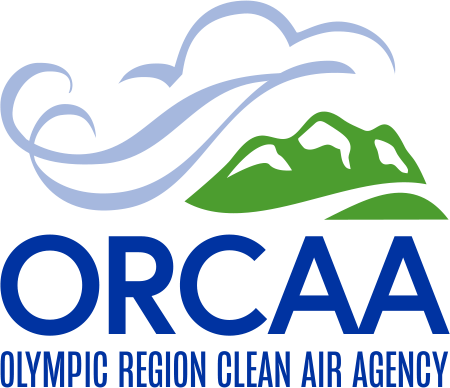Understand the different types of outdoor burning
Outdoor burning, in various forms, is allowed in much of ORCAA’s 6-county jurisdiction, though permits may be needed to legally burn.
Alternatives to Outdoor Burning
- Composted yard and garden debris on-site or disposed of at the local waste collection center where it will be commercially composted.
- Use a chipper to grind large, woody debris into a cheap, effective ground-cover material for your flowerbeds and gardens.
- Use a mulching mower rather than a bag-mower. This creates a healthier lawn without a collection of grass clippings.
- Find more alternatives to outdoor burning here.
Recreational Fires or campfires
You probably don’t need a permit but contact your local fire department to be sure.
Recreational fires must be no bigger than 3 feet in diameter, and must be fueled by clean, dry cordwood (‘firewood’) or charcoal.

Residential Yard-Waste Burning
Permit requirements vary by county. Contact your local fire department for information.
Residential fires refer to the burning of small amounts of yard waste accumulated on residential lots only. Burn piles should contain only dry, natural vegetation. No trash, milled lumber, or construction debris is allowed. Thurston County and Grays Harbor Fire District 12 residents require a permit.
Permit for Thurston County & Grays Harbor Fire District 12 Residential Yard-Waste Burning
Land Clearing Burning
A permit is needed and will be issued by ORCAA or your local fire department. Fees will be charged. Contact ORCAA or your local fire district to check on permit requirements.
Land clearing burning refers to the burning of natural vegetation cleared from properties for development purposes, used differently, or left unused. This includes the burning of stumps.
Agricultural Burning
A permit is needed and will be issued by ORCAA or your local fire district.
ORCAA rules define Agricultural Burning as: “The burning of vegetative debris from an agricultural operation necessary for disease or pest control, necessary for crop propagation and/or crop rotation, or where identified as a best management practice by the agricultural burning practices and research task force.
Please contact ORCAA’s Compliance Section for more information. You may also download a PDF copy of ORCAA Agricultural Burn Permit.
Silvicultural Burning
The Washington Department of Natural Resources (DNR) maintains authority over all silvicultural burning in the state. Contact the appropriate DNR regional office for details.
Silvicultural debris consists of trees, stumps, limbs, needles, etc., generated on residential unimproved property. DNR permits this type of burning. Unimproved Property includes land that is not irrigated, mowed, or otherwise maintained, including timbered pastures, brush lands, scrub forests, and forests.
Firefighter Training Fires
Training Fire Requests are only for firefighter training purposes. Training fires involving structures require submittal of an asbestos survey, a demolition notification and a Training Fire Request form prior to ignition.
Ceremonial Fires
Ceremonial fire permits are issued for Native American ceremonies. Please contact ORCAA’s Compliance Section for more information on obtaining the Ceremonial Fire Permit.

